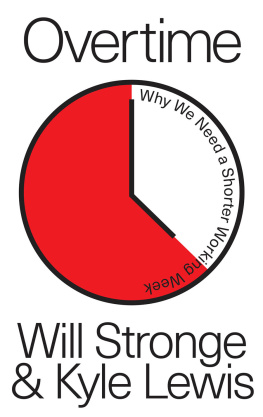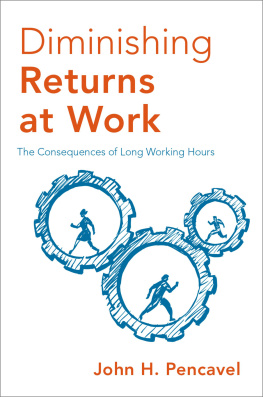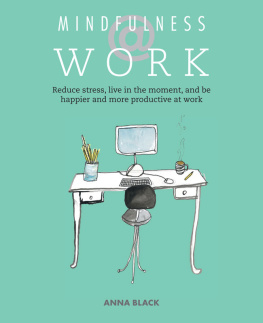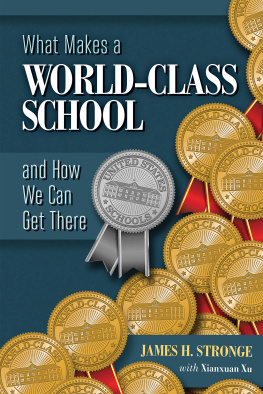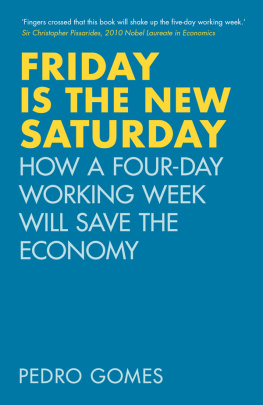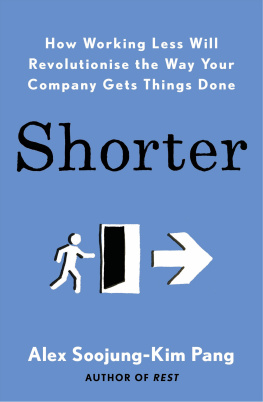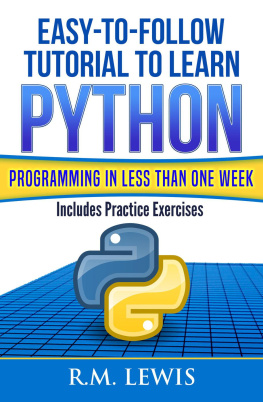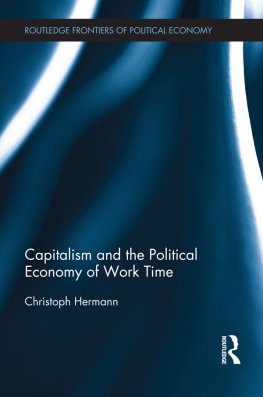Contents

OVERTIME
OVERTIME
Why We Need a
Shorter Working Week
WILL STRONGE and KYLE LEWIS

First published by Verso 2021
Will Stronge and Kyle Lewis 2021
All rights reserved
The moral rights of the authors have been asserted
1 3 5 7 9 10 8 6 4 2
Verso
UK: 6 Meard Street, London W1F 0EG
US: 20 Jay Street, Suite 1010, Brooklyn, NY 11201
versobooks.com
Verso is the imprint of New Left Books
ISBN-13: 978-1-78873-868-2
ISBN-13: 978-1-78873-869-9 (UK EBK)
ISBN-13: 978-1-78873-870-5 (US EBK)
British Library Cataloguing in Publication Data
A catalogue record for this book is available from the British Library
Library of Congress Cataloging-in-Publication Data
Library of Congress Control Number: 2021937562
Typeset in Sabon by Biblichor Ltd, Edinburgh
Printed and bound by CPI Group (UK) Ltd, Croydon CR0 4YY
Contents
We would like to acknowledge all of the staff and affiliates that have passed through Autonomy over the past three years: it is because of that organisation that this book has come about. Wed also like to say thank you to John Merrick for his patience and contributions as an editor.
INTRODUCTION: A
FIGHT AS OLD AS
CAPITALISM ITSELF
The Monday to Friday working week that many of us see as normal or natural is in fact a social and historical achievement, and one that is still unevenly distributed with workers in many parts of the world labouring round the clock, seven days a week, for almost nothing. The free time that we enjoy in much of the Global North is the result of victories achieved by workers in the nineteenth and twentieth centuries. It was the Australian stonemasons that first won the eight-hour day in 1856. This demand took more than mere words however. On 21 April, Stephens and colleagues walked off the job at Melbourne University in order to march to the Belvedere Hotel, picking up other construction workers on the way to join their endeavour. Fittingly, their show of strength ended with a banquet at the hotel itself where the manual labourers could revel in their collective stand. Following months of talks with their employers, their demand was met as reported in the local Herald:
[The masons] have succeeded, at least in all the building trades in enforcing [the eight-hour day] without effort. The employers have found it necessary to give in, and without struggle; agreeing, we believe, to pay the same amount of wages as formerly for ten hours labour.
The celebration of this historic victory for workers known initially as the 8 Hours Procession was commemerated for ninety-five years and ultimately became synchronised with international Labour Day celebrations.
The stonemasons example alongside many other struggles over working time throughout history can teach us at least two things: first, that our freedom from the hardships of work is rarely, if ever, given to us; it must be demanded and fought for. Second, it suggests that working time reduction is an aspiration of working people in whatever form of employment, in whatever epoch of capitalism. It was clear to those stoneworkers then as it is clear to us now that being able to relax, spend time with loved ones, pursue self-directed activity and have freedom from a boss are all essential parts of what it means to be human. Time is life after all.
Working time is still the issue
Yet this struggle over the time we spend at work is not one that has been consigned to the past. Once again, the fight for a shorter working week is back on the political agenda. Politicians across the Global North have in recent years reignited the political debate, not least Alexandria Ocasio-Cortez in the US, Sanna Marin in Finland, former Shadow Chancellor John McDonnell in the UK and Jacinda Ardern in New Zealand. The shorter working week is no longer a fringe campaign; instead, it is a central aspect of the renewal of socialist politics that has taken place in the past decade.
In some sense, the newfound public attention on working time is unsurprising: it is, after all, a structuring factor in all of our lives. Everyone in society has to reckon, in some way or another, with how long they work each week whether they have a job, are self-employed or work unpaid in the domestic sphere; whether they work too many hours, cant get enough hours or cant get a job at all. Work defines and determines all of our lives, from an early age right up until our final years.
We should note that in this book well be talking mainly about working time in terms of employment, and largely in the context of the Global North. Of course, this doesnt mean that other forms of work, or work in the Global South, are unimportant to the discussion far from it. Indeed, in the following chapters we integrate discussions of unwaged work and shadow work into our argument at various points, and we point to those theoretical and empirical resources for understanding global supply chains, which offer much greater analyses of these phenomena than we can here. Other forms of commodification of human activity such as slavery have long powered capitalist economies alongside wage labour, both physically, sometimes in the very same workplace, but also contemporaneously, across different continents, within the same value chain.
The crisis of work today
The renewed impetus that campaigns for a shorter working week are currently experiencing has come about in the context of a degraded labour market. If hard work at your job ever guaranteed an improvement in your situation, this is far from assured now. Over the past few decades, the share of national income going to wages and salaries has declined, while the share going to capital has expanded, meaning that simply owning assets such as shares or housing is a more expedient route to economic success; earning a living is an anachronistic term.
Research has shown that over time and across the globe, a higher capital share (and lower labour share) is linked with higher inequality in terms of the distribution of personal incomes.
Workers are getting a raw deal in more subtle ways too. They put in large amounts of unpaid overtime;
Traditionally, it has been the role of organised labour to prevent the degradation of labour and push for a better world of work. It is no accident that during the period when we saw significant reduction in working time the interwar years in both the UK and US trade union membership was high, and their remits were radical. During the 1980s, there was a sustained political project across much of the Global North to smash the collective power of workers. Following this, the space in which workers could have a say in how the labour market is run, and in whose interest, has been significantly squeezed. Consecutive, regressive labour legislation in the UK such as the Employment Act (1980) and the Trade Union Act (1984), as well as the present failure to clamp down on the bogus self-employment enacted by platforms such as Uber and Deliveroo, have contributed to the neutering of progressive labour market reform, and have meant that once-traditional trade union demands for such working time reduction have become increasingly remote from the mainstream agenda.
It has been estimated that the UK is now the country with the second lowest level of collective bargaining coverage in Europe.
In short, modern work particularly, but not exclusively, in the US and UK has reached new lows in terms of working conditions, the types of jobs available and the decision-making power that working people have in the workplace. Perhaps in this sense, we are again closer to Friedrich Engelss 1845

